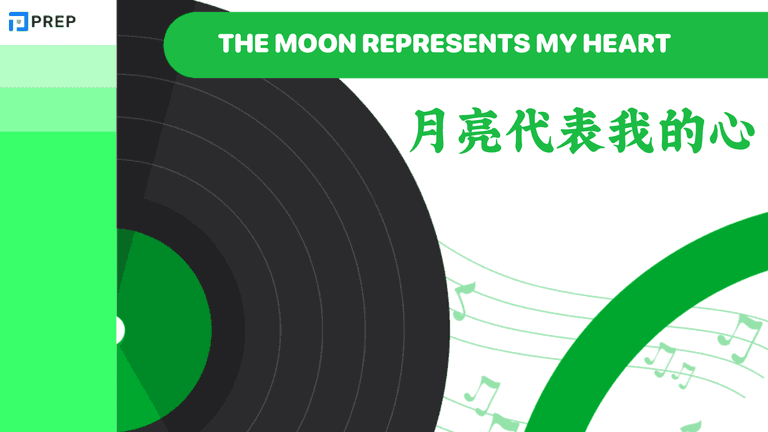But in Chinese: How to Use 但是, 可是, and 不过
“But in Chinese” can be expressed in several ways, including 但是 (dànshì), 可是 (kěshì), and 不过 (búguò). This guide explains their meanings, grammar structures, and subtle differences in tone. With examples, tips, and HSK references, you’ll learn to use them naturally in speech and writing.
I. Common Words for “But in Chinese”
When learning Mandarin, you'll quickly realize that there’s more than one way to say “but” in Chinese. This small word plays a big role—it connects ideas, introduces contrast, and reflects tone. Understanding how to express “but” accurately is essential if you want your Chinese to sound natural and grammatically correct.
In Chinese, the most common words for “but” include:
- 但是 (dànshì) – widely used in both speech and writing; neutral in tone
- 可是 (kěshì) – more casual or conversational
- 不过 (búguò) – softer in tone, often meaning "however" or “only”
Though all three essentially translate to “but,” they carry different nuances and are used in varied social and grammatical contexts.
This makes them especially important for learners preparing for formal communication or standardized tests like HSK, where proper register and sentence flow matter.
1. 但是 (dànshì)
但是 (dànshì) is one of the most common and widely accepted translations of “but” in Mandarin Chinese. It introduces a contrast or opposing idea, just like “but” or “however” in English. It can be used in both spoken and written Chinese, making it a foundational conjunction for learners at all levels.
- Pinyin: dànshì
- IPA: [tân.ʂɻ̩̂]
- Tones: Fourth tone (dàn) + fourth tone (shì) — both are falling tones, indicating a strong, clear break.
Usage and Context
- Formality: Neutral; suitable for most situations, including writing and formal conversation.
- Position: Typically placed at the beginning of the second clause — similar to English.
- Context of Use: Frequently used in news, essays, polite conversation, and presentations.
It's often used in combination with transition markers like 虽然 (suīrán – although) or 尽管 (jǐnguǎn – even though):
Structure example:
虽然今天很冷,但是我还是想出去。
Suīrán jīntiān hěn lěng, dànshì wǒ háishi xiǎng chūqù.
“Although it's cold today, I still want to go out.”
2. 可是 (kěshì)
可是 (kěshì) also translates to “but” in Chinese and serves a function similar to 但是, introducing a contrast or opposing statement. However, 可是 tends to sound slightly more casual and is more commonly used in spoken Mandarin than in formal writing.
- Pinyin: kěshì
- IPA: [kʰɤ̀.ʂɻ̩̂]
- Tones: Third tone (kě) + fourth tone (shì) — a dipping tone followed by a falling tone.
Usage and Context
- Formality: Slightly less formal than 但是; natural in daily conversation
- Position: At the start of the second clause, same as “but” in English
- Context of Use: Common in personal conversations, storytelling, and informal speeches
Although it’s often interchangeable with 但是, 可是 sounds more emotive or expressive, and may carry a tone of disappointment or hesitation, depending on intonation.
Structure example:
我很喜欢这份工作,可是薪水太低了。
Wǒ hěn xǐhuan zhè fèn gōngzuò, kěshì xīnshuǐ tài dī le.
“I really like this job, but the salary is too low.”
3. 不过 (búguò)
不过 (búguò) also means “but” or “however” in Chinese, but it carries a softer, more conversational tone. It often adds a light contrast or introduces an exception, similar to saying “just,” “only,” or “that said” in English.
Compared to 但是 and 可是, 不过 tends to downplay the contrast and sounds less forceful. It’s often used to soften disagreement or add nuance in both spoken and informal written Chinese.
- Pinyin: búguò
- IPA: [pǔ kwô]
- Tones: Second tone (bú) + fourth tone (guò)
Note: The tone of “不 (bù)” changes to second tone (bú) before a fourth tone like “过 (guò)” due to tone sandhi.
Usage and Context
- Formality: Informal; suitable for speech, casual writing, and friendly exchanges
- Position: Can be placed at the start of the second clause or even at the beginning of a new sentence as a soft transition
不过 is often used after a positive or neutral statement to slightly counter it without sounding too direct or negative.
Structure example:
这个提议听起来不错,不过我们需要更多时间考虑。
Zhège tíyì tīng qǐlái búcuò, búguò wǒmen xūyào gèng duō shíjiān kǎolǜ.
“This proposal sounds good, but we need more time to think it over.”
II. Key Differences of “But in Chinese” Words
While 但是 (dànshì), 可是 (kěshì), and 不过 (búguò) all translate to “but” in English, they’re not always interchangeable. Each word carries unique tones, varying levels of formality, and specific usage contexts. Understanding these differences helps learners sound more natural, precise, and culturally aware in conversation or writing.
Tone and Formality Differences
- 但是 (dànshì): Neutral and versatile. Appropriate for both spoken and written Chinese. Common in formal settings such as essays, reports, and presentations.
- 可是 (kěshì): More conversational and emotionally expressive. Often used in daily speech and informal communication.
- 不过 (búguò): Offers a lighter contrast. Great for softening the tone of disagreement or introducing gentle exceptions. Often occurs in casual settings.
Tip: When writing an academic essay, prefer 但是. In quick chats or stories, 可是 and 不过 feel more natural.
Grammar Structure and Sentence Placement
All three words share a common sentence structure:
Structure:
Clause A + 但是 / 可是 / 不过 + Clause B
→ Used to join two clauses that present contrasting ideas.
Example:
我喜欢这家餐厅,但是/可是/不过 它太贵了。
“I like this restaurant, but it’s too expensive.”
However, in subtle nuance:
- 不过 can also begin a new sentence as a soft transition:
我昨天去了。不过 他没来。
“I went yesterday. However, he didn’t show up.” - 可是 can emphasize emotion or reservation:
我知道你对,可是我还是不高兴。
“I know you’re right, but I’m still not happy.” - 但是 feels more structured, ideal for formal speech or writing.
Native Speaker Preferences and Flexibility
- Mandarin speakers tend to use 可是 in casual conversation when speaking quickly or emotionally.
- 不过 is a popular choice to add nuance or soften contrast, especially among younger speakers.
- In writing—especially academic, journalistic, or business contexts—但是 is most widely accepted.
III. Practical Usage of “But in Chinese”
Mastering the word “but” in Chinese goes beyond vocabulary—it’s about using the right word in the right context. Whether you're chatting with friends, composing an HSK writing task, or participating in a meeting, choosing between 但是, 可是, or 不过 can subtly shift the tone and clarity of your message.
Real-Life Dialogue Examples
Understanding Chinese conjunctions is easier when you see them in action. Below are some sample conversations using different “but” words:
Dialogue 1 – 但是 (neutral/formal):
A: 你这个计划听起来不错。
B: 但是我们现在没有足够的预算。
A: “Your plan sounds good.”
B: “But, we currently don’t have enough budget.”
Dialogue 2 – 可是 (casual/emotional):
A: 你说你会来!
B: 可是我堵车了,真的抱歉。
A: “You said you'd come!”
B: “But I was stuck in traffic—really sorry!”
Dialogue 3 – 不过 (soft/nuanced):
A: 我觉得她今天表现不错。
B: 不过她还是有点紧张。
A: “I think she did well today.”
B: “But she was still a little nervous.”
These examples show how native speakers choose different “but” words based on tone, emotion, and intent.
Common Mistakes by Learners
Many learners mistakenly assume that all “but” words are interchangeable. Here are a few frequent errors and how to avoid them:
- Overusing 但是 in every context (even when 可是 or 不过 would sound more natural)
- Forgetting tone sandhi (changing "bù" to "bú" → 不过, not bùguò)
- Using 不过 in formal writing where 但是 is expected
- Placing the conjunction in the wrong position—e.g., before the first clause or with incorrect punctuation in writing
Tip: Listen to native speakers or watch subtitled videos to get a feel for natural usage rhythm.
Occurrence in HSK and Exams
If you're preparing for standardized tests like the HSK, knowing how to use these “but” words correctly is essential.
HSK Levels:
- 但是 typically appears as early as HSK 2–3
- 可是 may show up in listening and reading at HSK 3–4
- 不过 is more likely to appear in HSK 4–6, especially in reading and writing sections
Exam strategies:
- Use 但是 for writing tasks—it’s safe, clear, and widely accepted
- For dialogue completion or listening tasks, choose 可是 or 不过 if the tone is casual
- Practice rewriting sentences by switching conjunctions and adjusting tone to increase fluency
Mastering how to say “but” in Chinese isn’t just about translation—it’s about knowing which word fits the tone, social context, and intent of what you're saying. Whether you’re using 但是 (dànshì) for clarity, 可是 (kěshì) for casual conversations, or 不过 (búguò) to gently soften a contrast, choosing the right word helps your Chinese sound more natural and authentic.
Keep refining your Mandarin with PREP’s targeted grammar guides, usage examples, and training resources—carefully designed to help you express contrast, nuance, and fluency across any situation in Chinese.

Hi I'm Chloe, and I am currently serving as an Product Content Administrator at Prep Education. With over five years of experience in independent online IELTS study and exam preparation, I am confident in my ability to support learners in achieving their highest possible scores.











